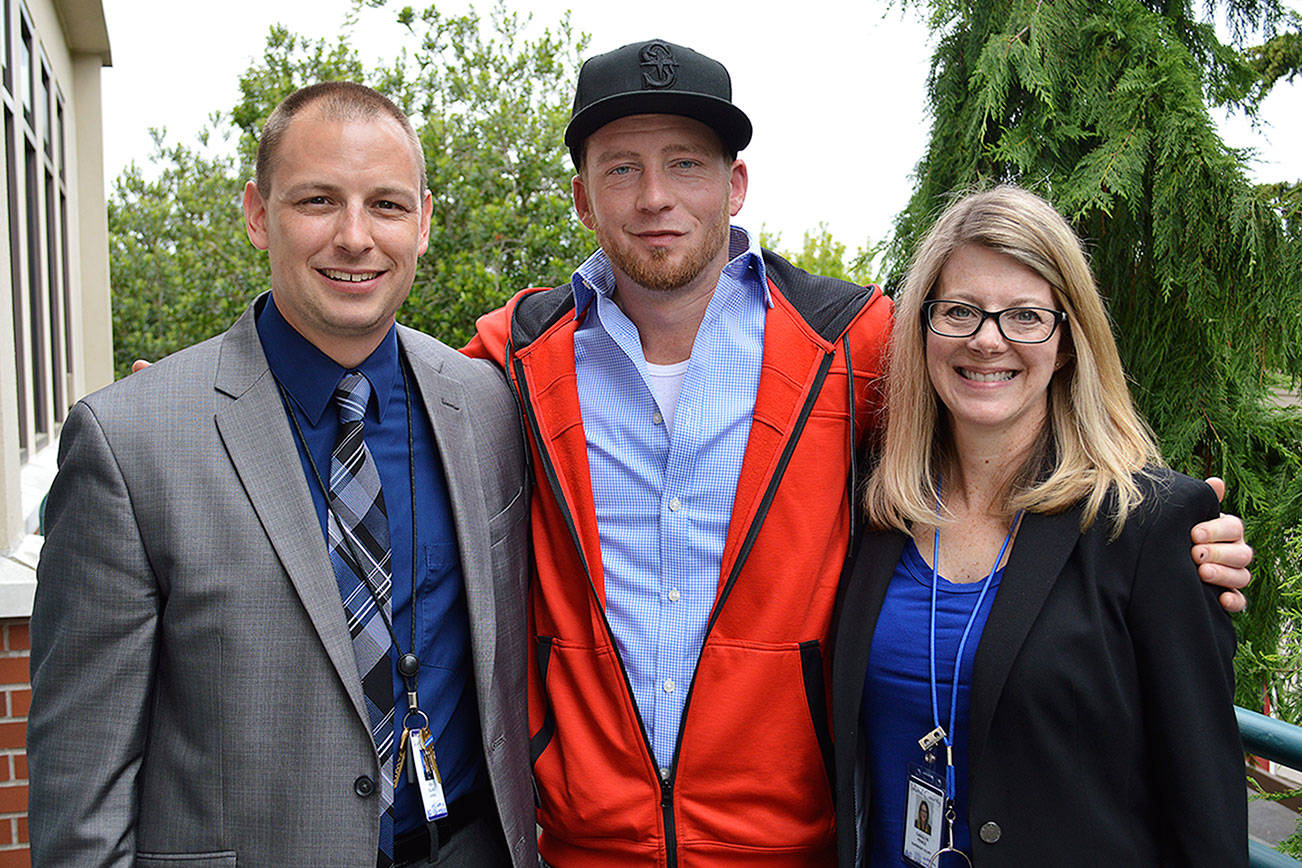Conrad Standinger doesn’t remember being put into the Island County Adult Felony Drug Court program, but he’s glad he was.
“I really am thankful for getting arrested and going to jail,” the 33-year-old Clinton resident said.
He was held in jail for non-violent felony charges, which qualified him to participate in the drug court program to have the charges dismissed or reduced. In 2016, Standinger said his alcoholism was so severe he had seizures if he didn’t drink, he had a reputation among law enforcement and he wasn’t allowed in some grocery stores.
Last Thursday marked 771 days of intensive treatment, supervision and adherence to strict conditions associated with the program. His graduation happened to fall in May during the first year the month has been officially recognized by Island County as Drug Court Month.
The painful and disjointed memories of who he was two years ago almost stopped Standinger from allowing his story to be told in the South Whidbey Record.
“I didn’t want people to be reminded of my old ways,” he said. “But everybody knows who I was and who I am now.”
Standinger, who was clearly uncomfortable being in the spotlight, said that he changed his mind because he wanted to spread the word about drug court and what it did for him. Everyone present at the graduation celebration recognized the stark contrast between the Standinger of two years ago and the one who stood before them last Thursday.
Current and former law enforcement officers who used to respond to calls complaining about Standinger’s parties shared his cake and their congratulations.
“I was with you in some of your darkest times,” Deputy Marshal Leif Haugen said to him. “You may not remember some of those times, but I just want you to know that you’re very inspirational.”
He had a bit of a bumpy start, according to Ken Delano, drug court case manager. Toward the beginning of his program, he had multiple urine analyses come back unreadable because of too much water and one test came back positive for alcohol, Delano said. Standinger said the stress of finding transportation for weekend urine tests in Oak Harbor would cause him anxiety all week because he relied on the bus system. He said he struggled with the lack of freedom that came with the treatment, meetings, check-ins and urine tests he was required to do, but he eventually identified the structure of the program as a major factor in his path to sobriety. The encouragement from the others going through the program also helped, he said.
“We definitely are supportive of one another, and I like to see people succeed,” said Standinger.
The encouragement is evident in the court room. Participants are met with applause and cheers when they announce they are clean and sober. Other successes in their lives, such as finding a new place to live, getting a job or even spending a weekend fishing with a nephew are also celebrated. Even slip-ups are met with understanding if the participant chooses to be honest, although they aren’t without consequences.
Last Thursday, Standinger stepped up to the podium for his last time to announce he was clean and sober. The other participants and court personnel cheered.
It didn’t take long for Standinger to become a model example of a drug court participant, Delano said. He almost always made his Alcoholics Anonymous meetings and weekly check-ins with drug court staff and found himself the strong support system he’d been previously lacking.
“It’s amazing,” Delano said of Standinger’s transformation.
Delano wasn’t the only one amazed. Island County Superior Court Judge Alan Hancock spoke at the short celebration before handing Standinger the dismissal of the charges against him.
“To see the transformation that you’ve made is an inspiration to us all,” Hancock said. “And should give great inspiration to others that are in the program.”
Standinger, who said he is looking forward to his new freedom, will leave to work on a commercial fishing boat in Alaska in early June. Despite his excitement about the accomplishment of graduating, he said he had mixed emotions about it. He expressed gratitude for the program and said he’d miss it, especially watching the other participants continue to grow.
Before he left the court room Thursday, Hancock reminded Standinger that the completion of the program marked a new start.
“It’s all over, congratulations,” he said.



